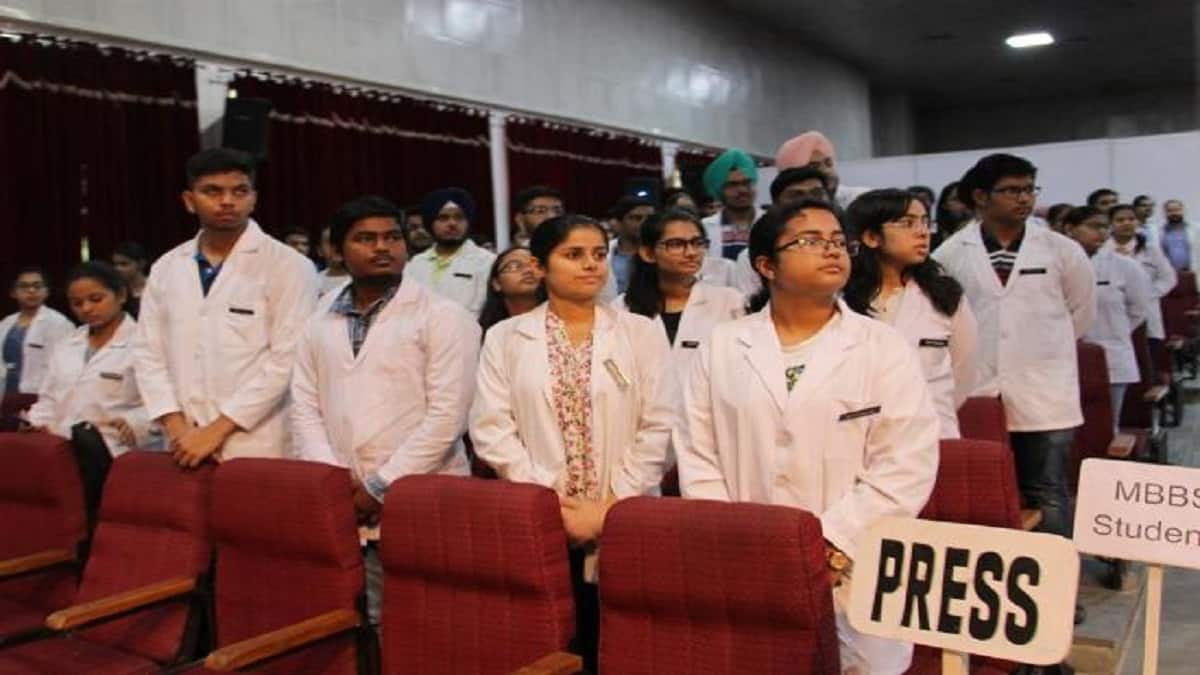NEET 2025: MBBS seats rise by 130%, PG by 138.3% in last decade; 780 medical colleges in India, says Govt
Anu Parthiban | April 5, 2025 | 06:35 PM IST | 1 min read
The number of medical colleges in India increased by 101.5% from 387 before 2014 to 780 as of now, the health ministry told the Lok Sabha.
NEET 2026 Free Mock Test with Solutions
Download the NEET 2026 Free Mock Test PDF with detailed solutions. Practice real exam-style questions, analyze your performance, and enhance your preparation.
Download EBook
NEW DELHI: With the growing demand for medical education, India has seen a significant surge in the number of MBBS and postgraduate medical seats in the past decade. From 2014 to 2025, the number of MBBS seats increased by 130% and PG seats by 138.3%.
As per the data shared by the ministry of health and family welfare, MBBS seats in India increased from 51,348 before 2014 to 1,18,190 as of now and PG seats from 31,185 before 2014 to 74,306 as of now.
Moreover, there has been a remarkable increase of 101.5% in medical colleges from 387 before 2014 to 780 as of now, the ministry told the Lok Sabha.
The state-wise data on the number of medical colleges shared by the ministry last year showed that Tamil Nadu has the highest number of 38 government medical colleges, followed by Uttar Pradesh and Maharashtra.
Further, the ministry said: “Centrally Sponsored Scheme for establishment of new medical colleges by upgrading district/ referral hospitals under which 131 new medical colleges are already functional out of 157 approved medical colleges.”
Also readUP NEET cut-off for MBBS in government medical colleges rises for 3, drops for KGMU, others
Under “Upgradation of Government Medical Colleges by construction of Super Specialty Blocks” of Pradhan Mantri Swasthya Suraksha Yojana (PMSSY) scheme, a total of 75 projects have been approved, of which 71 projects are complete, it informed the Parliament.
Out of the 22 new AIIMS, undergraduate medical courses have been started in 19 of these, it added.
As per the data shared by the National Medical Commission (NMC), there are 13,86,150 registered allopathic doctors, the ministry of AYUSH informed. “There are 7,51,768 registered practitioners in the AYUSH system of medicine. Assuming that 80% of registered practitioners in both the allopathic and AYUSH systems are available, the doctor population ratio in the country is estimated to be 1:811,” it said in March.
Follow us for the latest education news on colleges and universities, admission, courses, exams, research, education policies, study abroad and more..
To get in touch, write to us at news@careers360.com.